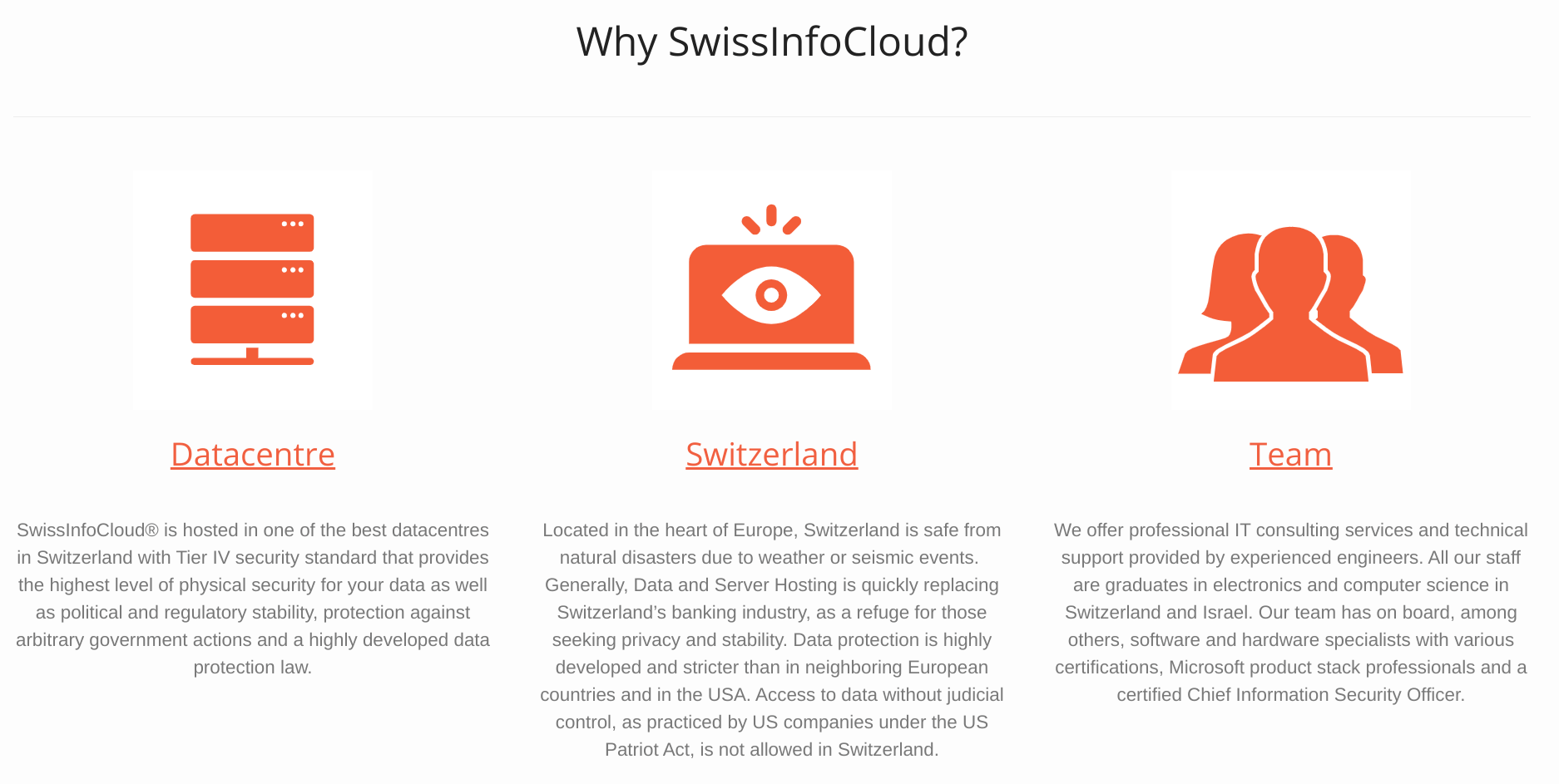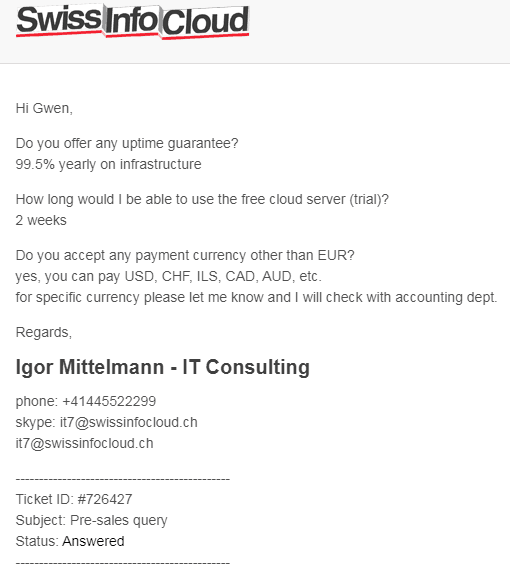
SwissInfoCloud started its journey more than a decade ago, since when it has provided businesses with a broad range of I.T. solutions. This Swiss company claims to provide its clients with access to the world’s leading infrastructure.
SwissInfoCloud’s solutions include cloud servers, secure communications, storage, and security tools. Its website can be switched between the English and Russian languages.
Features and Ease of Use

SwissInfoCloud offers five dedicated VPS packages (including Linux and Windows options), three managed VPS (Windows only), dedicated servers, hybrid solutions, virtual private cloud, and private cloud solutions.
Not all of the advertised packages can be purchased directly from the website’s product pages, so you’d have to fill out an order form. The cart/client area lets you purchase two custom cloud server packages (one Unix/Linux, one Windows) and one IaaS package.
The dedicated VPS packages provide you with:
- 99.5% uptime guarantee
- 10 GB to 500 GB HDD storage
- 1 GB to 8 GB RAM
- 1 to 4 CPU cores
You get dedicated VLAN for ease of administration, enforcement of security policies, and reduced broadcast traffic. You also get unlimited traffic.
SwissInfoCloud operates a Tier 4 data center for the highest possible level of performance. If the worst should ever happen, you’ll be pleased that this provider has a disaster recovery and backup service.
Pricing and Support

SwissInfoCloud’s dedicated VPS packages are very pricey. While the product pages imply that you can pay monthly, the cart gives you a choice of monthly, quarterly, semi-annual, annual, biennial, or triennial terms. Accepted currencies include euros, U.S. dollars, Canadian dollars, Australian dollars, Swiss francs, or Israeli new shekels, and available payment methods include PayPal, bank transfer, Paysera, and Payoneer.
The cart alludes to a cloud server free trial but doesn’t specify a duration, so I clarified with customer services that this is a two-week free trial.
You can contact the company through telephone, ticket, Skype, or email. Additionally, the company supposedly offers remote support and maintains a well-populated knowledge base for self-support.
 Website Planet
Website Planet










